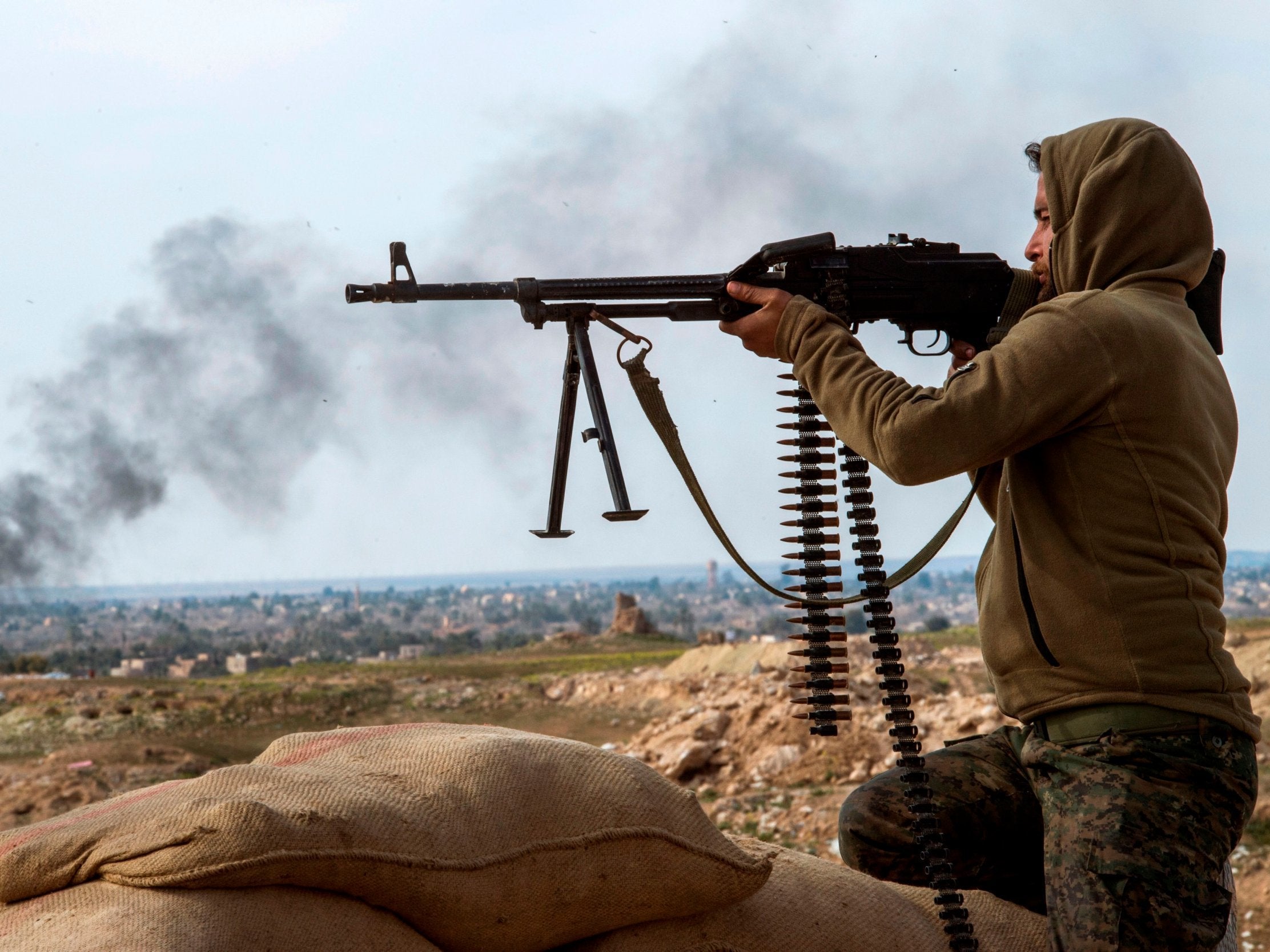Hundreds of Isis prisoners with ‘no blood on their hands’ released in Syria
Released suspects were not involved in fighting, groups holding them says
Your support helps us to tell the story
From reproductive rights to climate change to Big Tech, The Independent is on the ground when the story is developing. Whether it's investigating the financials of Elon Musk's pro-Trump PAC or producing our latest documentary, 'The A Word', which shines a light on the American women fighting for reproductive rights, we know how important it is to parse out the facts from the messaging.
At such a critical moment in US history, we need reporters on the ground. Your donation allows us to keep sending journalists to speak to both sides of the story.
The Independent is trusted by Americans across the entire political spectrum. And unlike many other quality news outlets, we choose not to lock Americans out of our reporting and analysis with paywalls. We believe quality journalism should be available to everyone, paid for by those who can afford it.
Your support makes all the difference.Hundreds of Isis prisoners have been released from jail in Syria, after Kurdish authorities holding them said that they had “no blood on their hands”.
Some 283 Syrians suspected of being Isis members were released by the Syrian Democratic Forces over the weekend as a gesture of “cooperation, fraternity and clemency,” the group said in a statement.
The move was reportedly negotiated with tribal leaders from northeast Syria, many of whom have played a key role in the fight against Isis as part of the joint Arab-Kurdish SDF.
“They had lost their way ... violated the traditions of the Syrian society and the law, and some of them had been deceived ... but they remain our Syrian children,” the statement said.
The group said those released were not involved in fighting, but may have held administrative positions within the group. The SDF did not reply to The Independent's request for comment.
The SDF has said they are only days away from liberating the last Isis-held territory in Baghouz, in Syria’s eastern Deir ez-Zor province.
After a day and night of heavy fighting, the UK-based Syrian Observatory for Human Rights said that 150 Isis fighters had surrendered on Monday morning.
The release comes amid a debate over the fate of hundreds of Europeans who came to join Isis, and are also in SDF custody.
As the caliphate has shrunk over the past few months, thousands of Isis fighters and their families have fled the area and surrendered to the SDF, among them more than 800 European citizens.
The group is now calling for countries to take back the foreigners who came to Syria, saying it does not have the resources to hold them indefinitely. But the UK and most other European countries have so far refused to consider repatriating them, citing security fears.
One of them, Shamima Begum, a 19-year-old British woman who travelled to Syria to join the group in 2015, recently had her citizenship stripped by the home office. The home secretary, Sajid Javid, has previously said that he would move to block any British citizen suspected of joining Isis from returning.

But the release of the Syrian Isis prisoners appears to have been motivated by local concerns, and is unlikely to affect the detention of Europeans. It is also not the first time large numbers have been released.
“This happens a lot,” Hassan Hassan, director of non-state actors programme at the Center for Global Policy, told the Independent. “They say these guys didn’t really join because of the ideology and they didn’t kill anybody. But the concern is that future scenarios could lead some of those people to go back to Isis.”
Most of those being released are thought to be members of the powerful Sunni tribes from the Euphrates River area. When Isis took control of Deir ez-Zor, it used violence to coerce many tribal members into joining the organisation. But many took up arms against the group, and fought alongside Kurdish fighters as part of the SDF.
The SDF has presented itself as an alternative model of governance to the Syrian government, and controls roughly one third of the country. While the group is made up of mostly Kurdish fighters, its territory also covers Arab towns and cities. Managing that territory after the fall of Isis will require cooperation between Kurdish groups and the tribes of eastern Syria, according to Hassan.
“The SDF has been working on outreach and deepening their relations with the tribes,” he said. “The problem is when tribes start to intervene to get their relatives out. What do you do? How do you balance between engaging with tribes and at the same time not opening doors to Isis to return through sleeper cells and half hearted sympathisers.”

Join our commenting forum
Join thought-provoking conversations, follow other Independent readers and see their replies
Comments